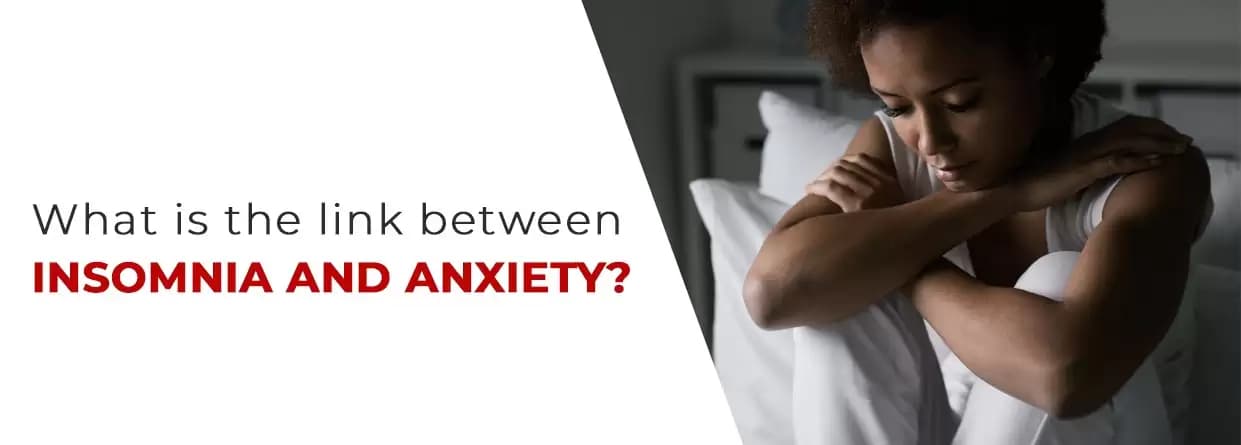
Insomnia refers to the disturbance in sleep that could either mean
Insomnia refers to the disturbance in sleep that could either mean trouble falling into sleep or staying in it. It is a sleep disorder that can make the person wake up too early and lead to tired feelings throughout the day. Many insomnia patients usually complain about suffering from fatigue (low levels of energy), a bad mood, and poor health that affect their quality of life, mental health, and work performance.
Anxiety is a natural response of the body which is under emotional stress. It is when a person becomes worried about anything bad or unpleasant that could happen in near future. If a person feels sick with apprehension for six months or longer and has extreme anxiety feelings that have an impact on everyday life and personal relationships, it means anxiety has developed into an anxiety disorder. The types of anxiety disorders include panic attacks, general anxiety, social anxiety, obsessive-compulsive disorder, some phobias, and post-traumatic stress disorders.
Calcutta Medical Research Institute (CMRI), best hospital in Kolkata where the expert sleep doctors conduct an initial assessment and provide several comprehensive treatment sessions that stimulate control and relaxation in patients suffering from insomnia and empower them with long-term management of sleep.
According to mental studies (neurochemistry and neuroimaging) carried out in some insomnia patients, it has been found that stress, depression, or anxiety can be directly linked to the person losing sleep or poor sleeping habits. The studies suggest:
A night of sufficient sleep is required by everyone especially going into the stage of the sleep cycle wherein the eye movement is rapid and the brain activity is more, leading to intense dreaming. This is because at this time the brain processes the emotional information and looks after both emotional and mental resilience.
Prolonged sleep disruptions may influence the mood, and give rise to negative thinking, and emotional reactivity or sensibility.
The answer typically depends upon whether Anxiety comes first or Insomnia. It is very well-known that a chronically sleep-deprived person will have a high chance of getting an anxiety disorder. It can also intensify the anxiety disorders or not allow the person with anxiety to recover. However, anxiety can also cause sleep disruption in the form of bad nightmares and insomnia.
People who think they have insomnia must confirm it by consulting a sleep specialist in Kolkata. They are usually recommended to maintain a sleep diary for some weeks and go for a physical examination. If the healthcare provider thinks insomnia is one of the probable cases, the patient is referred to a sleep specialist. A sleep study (polysomnogram) to monitor and interpret all the activities that take place while the person is asleep is also carried out by a sleep specialist to check for insomnia.
If the patient is having both insomnia and anxiety, then a suitable treatment for sleep and anxiety disorder can be provided. The treatment options available are sleep medicine, cognitive behavior therapy, some relaxation techniques, and medications for anxiety disorders.
Are you experiencing both anxiety and sleep disorders? Consult with the best doctor for sleep disorders at CMRI. The doctors at CMRI can help you regain your desired quality of life by offering the best care, lifestyle modifications, therapy, counseling, and treatment.
Written and Verified by:
-Dr.-R.-Shyamkrishnan-(-Pulmonology-).webp&w=256&q=75)
Dr. Shyam Krishnan is a Consultant in Pulmonology at CMRI, Kolkata, with over 10 years of experience. He specializes in interventional pulmonology, bronchoscopy, thoracic ultrasound, airway stent replacement, and lung infection management.
Similar Pulmonology Blogs
Book Your Appointment TODAY
© 2024 CMRI Kolkata. All Rights Reserved.